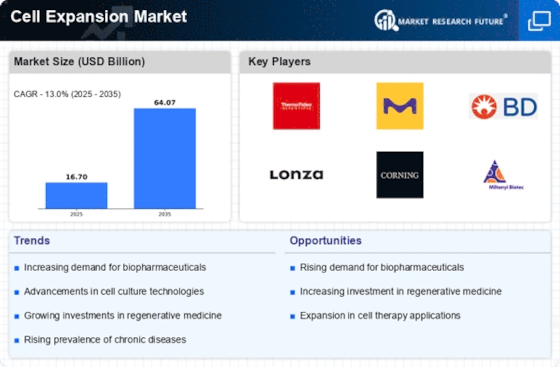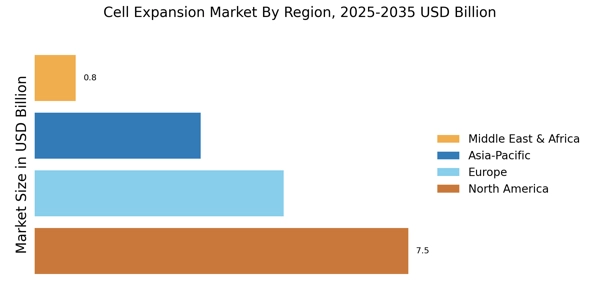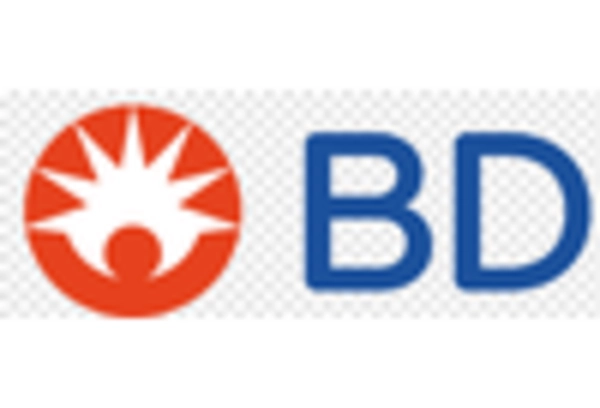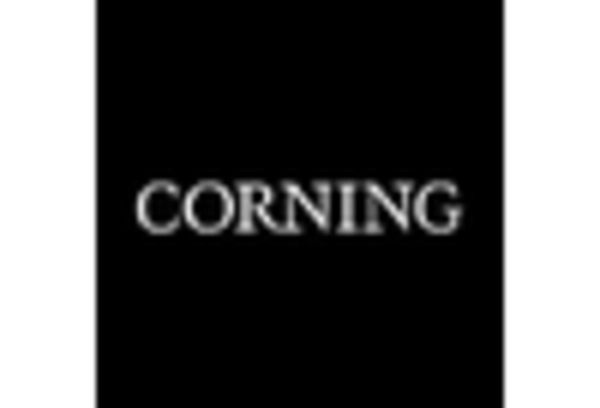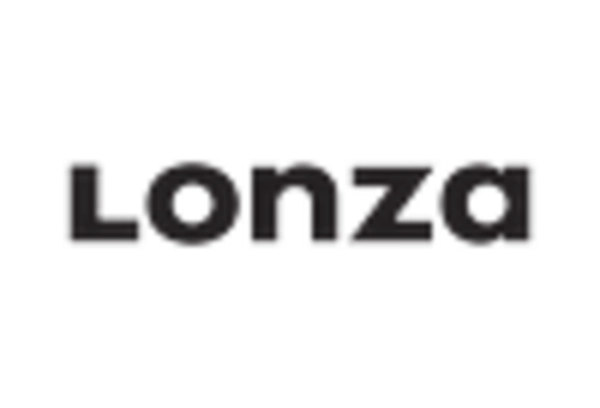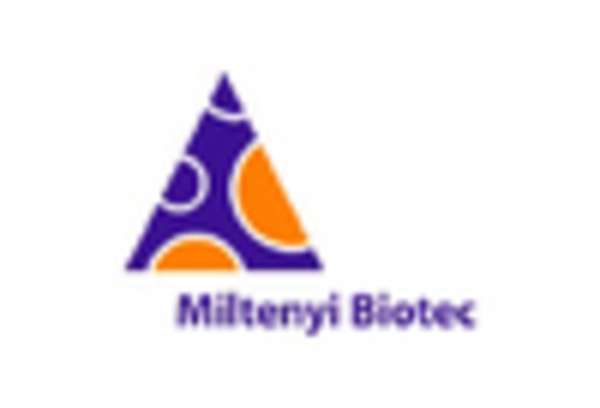Rising Demand for Personalized Medicine
The Cell Expansion Market is witnessing a notable rise in demand for personalized medicine, which is reshaping therapeutic approaches. As healthcare moves towards tailored treatments, the need for specific cell types for patient-specific therapies is increasing. This trend is particularly evident in oncology, where expanded immune cells are being utilized for personalized cancer treatments. The market for personalized medicine is projected to grow significantly, with estimates suggesting it could reach USD 100 billion by 2026. This growth is likely to drive advancements in cell expansion technologies, as researchers seek to optimize cell production for individualized therapies.
Regulatory Support for Cell-Based Products
Regulatory support is emerging as a crucial driver for the Cell Expansion Market. Governments and regulatory bodies are increasingly recognizing the importance of cell-based products in advancing healthcare solutions. Initiatives aimed at streamlining the approval processes for cell therapies and regenerative medicine are fostering a more favorable environment for innovation. In 2025, it is anticipated that regulatory frameworks will become more conducive to the commercialization of cell-based products, potentially accelerating market growth. This supportive landscape encourages investment in cell expansion technologies, as companies seek to navigate the regulatory landscape effectively and bring their products to market.
Technological Innovations in Cell Expansion
The Cell Expansion Market is experiencing a surge in technological innovations that enhance cell culture processes. Advanced bioreactors, automated cell culture systems, and improved media formulations are driving efficiency and scalability. For instance, the introduction of single-use bioreactors has simplified the manufacturing process, reducing contamination risks and operational costs. According to recent data, the market for bioreactors is projected to grow at a compound annual growth rate of over 10% through 2026. These innovations not only streamline production but also enable researchers to achieve higher yields and better cell viability, which are crucial for applications in drug development and regenerative medicine.
Increasing Investment in Cell-Based Therapies
Investment in cell-based therapies is a pivotal driver for the Cell Expansion Market. As the healthcare sector increasingly recognizes the potential of cell therapies for treating chronic diseases, funding for research and development has escalated. In 2025, the market for cell-based therapies is expected to reach approximately USD 20 billion, reflecting a robust growth trajectory. This influx of capital supports the development of novel cell expansion techniques and technologies, thereby enhancing the overall market landscape. Furthermore, collaborations between biotech firms and academic institutions are fostering innovation, which is likely to propel the industry forward.
Growing Applications in Drug Discovery and Development
The Cell Expansion Market is significantly influenced by its expanding applications in drug discovery and development. Pharmaceutical companies are increasingly utilizing expanded cells for high-throughput screening and toxicity testing, which are essential for the early stages of drug development. The demand for more efficient and reliable testing methods is driving the need for advanced cell expansion technologies. In 2025, it is estimated that the market for cell-based assays will exceed USD 5 billion, underscoring the critical role of cell expansion in the pharmaceutical sector. This trend indicates a shift towards more personalized medicine approaches, further solidifying the importance of cell expansion.


